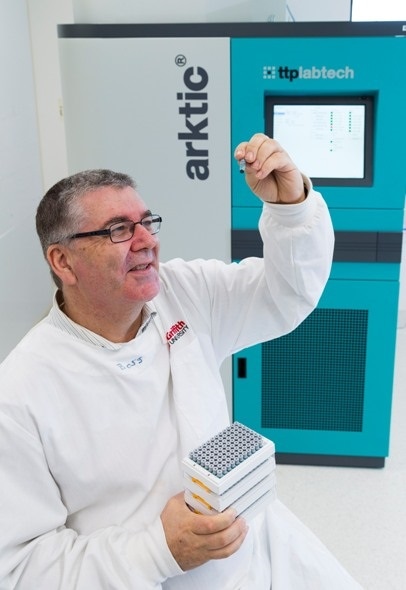Dec 5 2017
Translational medical research has been given a major boost with the introduction of a new biobanking resource at Griffith University’s Gold Coast campus.

Professor Nigel McMillan
The Gold Coast Biobank is a purpose-designed biostorage facility bridging the gap in translational clinical research. A first for the Southern Hemisphere, GCBiobank recently installed an automated biostorage, the Arktic, capable of catering for a library of up to 100,000 specimens in a compact package, along with OpenSpecimen, a biostorage management system.
“With this new state-of-the-art technology, we now have the resources to improve the management of our existing samples and the capacity to take on new projects,” says Professor Nigel McMillan from Griffith’s Menzies Health Institute Queensland (MHIQ) and who will speak at the Gold Coast Health Research Week Conference (28-30 November).
“MHIQ is committed to translating innovative health research into better health outcomes and so now we are able to offer research collaboration for all academics and clinicians whose work may involve the collection of human tissue.”
We can offer researchers and their institutions the opportunity to skip the collection process - which can be costly and time consuming - and go straight into ordering the samples they want with ease.
“Researchers who may not have very large budgets will be afforded the chance of a cost effective research solution, accessing the samples that they want without having to go through onerous procedures,” says Professor McMillan.
Having been installed in the biobank facility of MHIQ, the Arktic will serve as a central repository to store biospecimens, which can then be retrieved by researchers in the future.
Griffith University biobanking will be highlighted at the Gold Coast Health Research Week Conference which starts 27 November with a pre-conference evening hosted by Griffith’s MHIQ.
The conference program offers sessions and opportunities for collaborative discussion and networking between clinicians and academics.